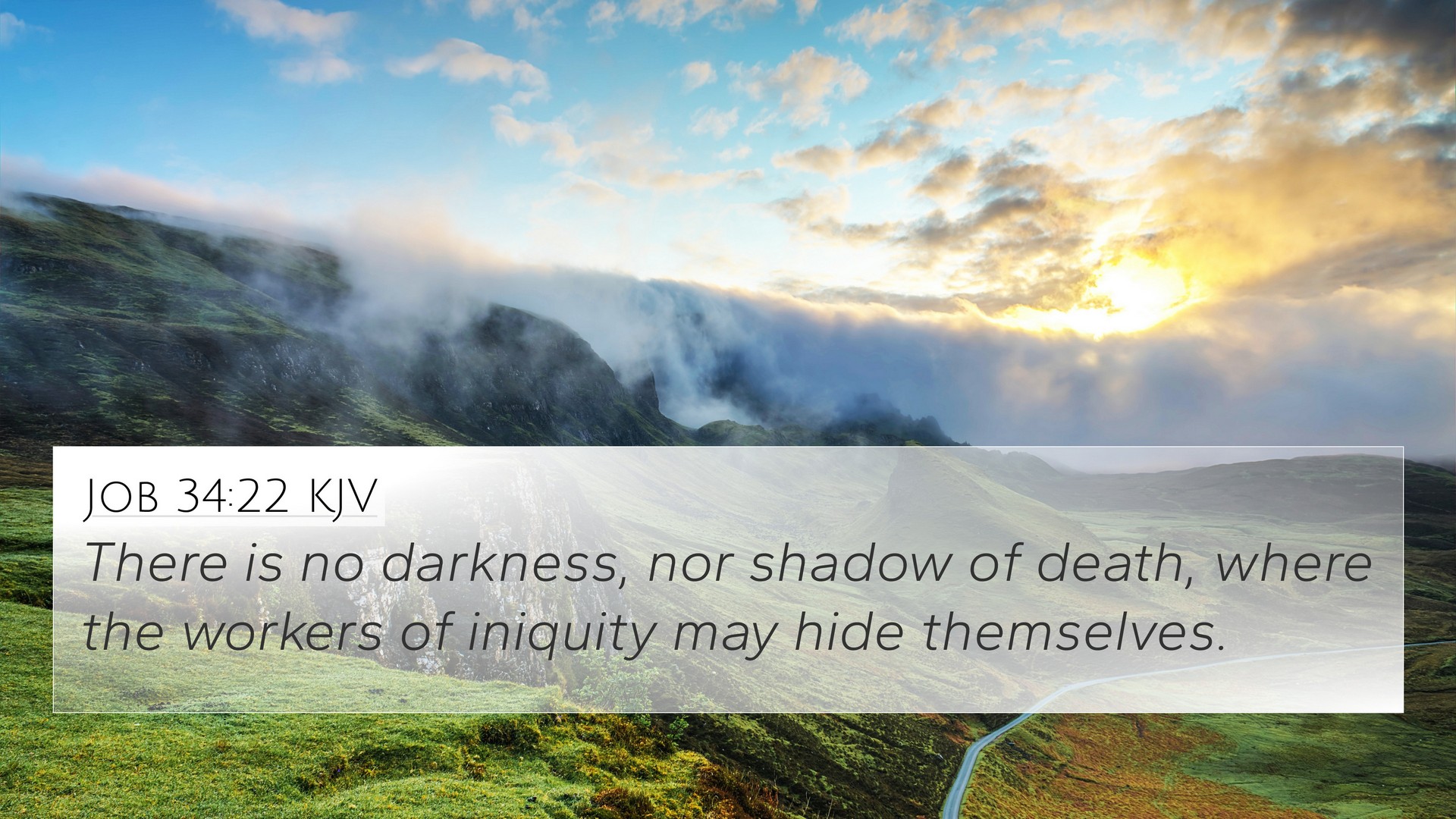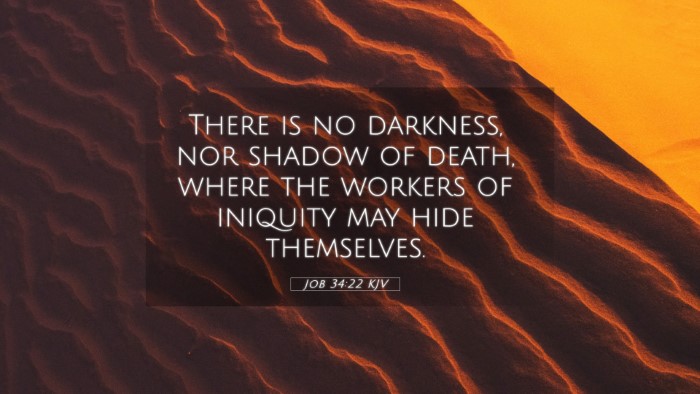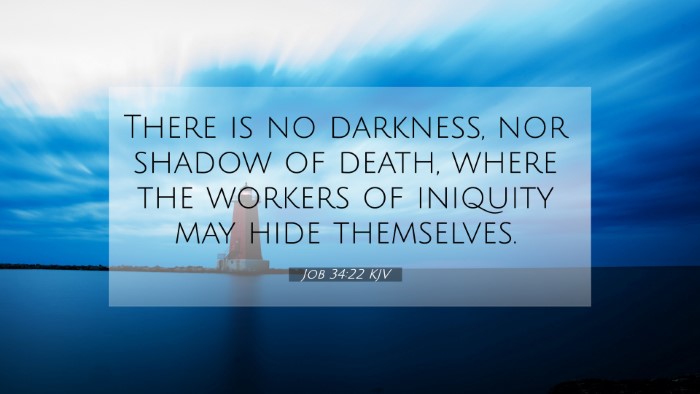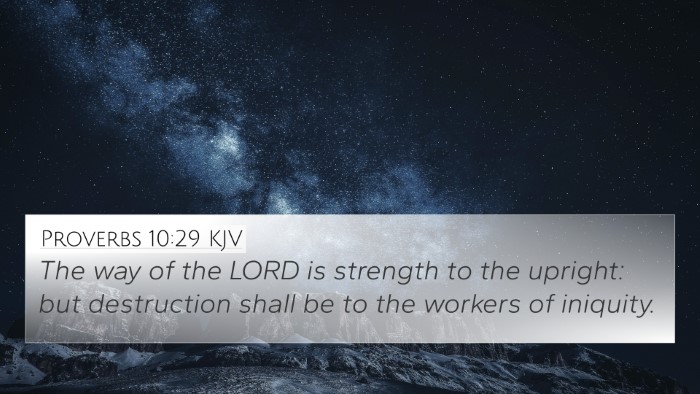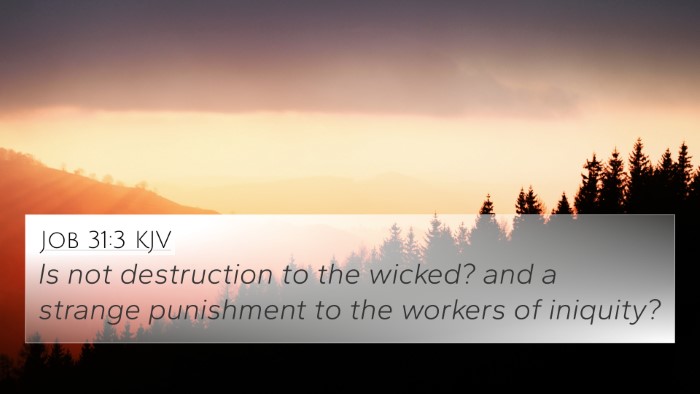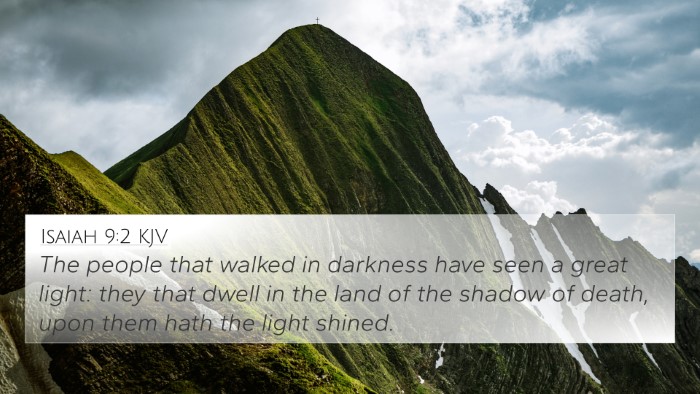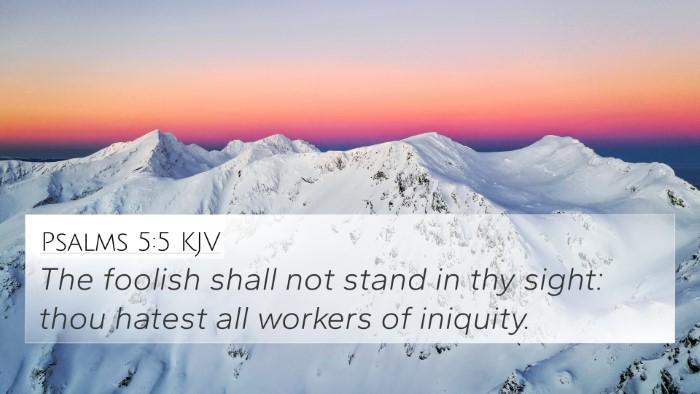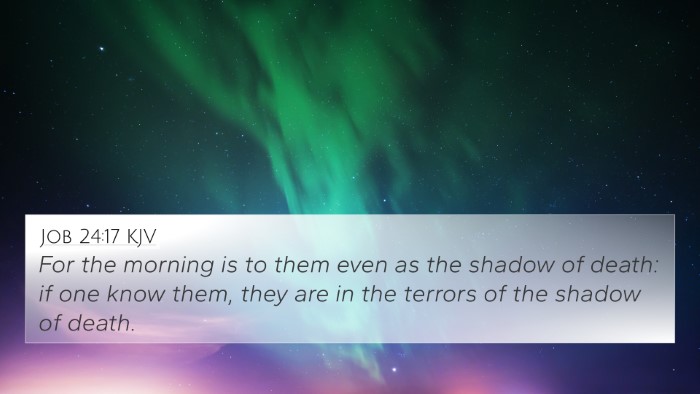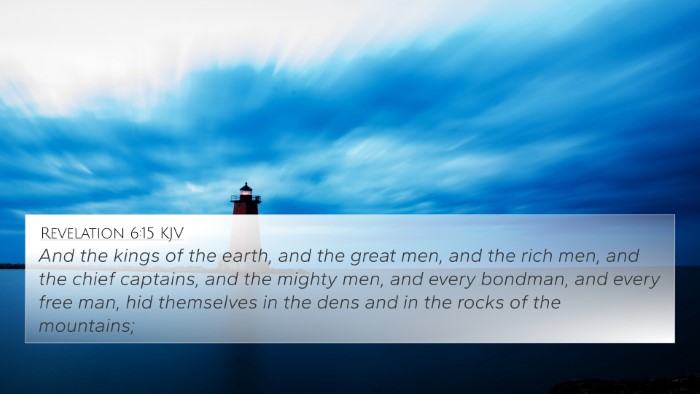Understanding Job 34:22
Verse: Job 34:22 - "There is no darkness, nor shadow of death, where the workers of iniquity may hide."
This verse from Job encapsulates the idea of God's omnipresence and the inescapability of divine justice. Job's discourse, central to the narrative, emphasizes that no matter where one may attempt to hide, God's gaze penetrates through all, bringing accountability to every deed.
Insights from Public Domain Commentaries
Matthew Henry's Commentary
Henry explains that this verse affirms God’s awareness of all human actions, asserting that sin can never be concealed from the divine eye. He reminds us that any attempted escape from accountability is futile, as darkness symbolizes not only ignorance but also sin and moral failings that God sees clearly.
Albert Barnes' Notes on the Bible
Barnes discusses the implications of “shadow of death” as metaphorical for the ultimate state of human despair and corruption. He provides that since God is light, darkness has no portion in Him, reinforcing that no actions performed in secret can escape His notice. This statement highlights the inherent righteousness of God, where every action has consequence.
Adam Clarke's Commentary
Clarke emphasizes the assurance that the wicked cannot find refuge from God's judgment. He interprets "workers of iniquity" as those deliberately engaging in wrongdoing, and through this verse, it is established that divine justice will prevail irrespective of attempts to hide. Clarke also alludes to the moral of seeking the truth in a world often shrouded in darkness.
Thematic Connections and Cross-References
Job 34:22 connects with several key themes in the Bible regarding God's omnipresence, justice, and the futility of hiding sin. Here are some significant cross-references:
- Psalms 139:7-12: "Where can I go from Your Spirit? Or where can I flee from Your presence?" - This verse reinforces the concept of God's unyielding presence.
- Hebrews 4:13: "And there is no creature hidden from His sight, but all things are naked and open to the eyes of Him to whom we must give account." - It mirrors the accountability we have before God.
- Proverbs 15:3: "The eyes of the Lord are in every place, keeping watch on the evil and the good." - This emphasizes God's vigilant observation of all human actions.
- Luke 8:17: "For nothing is secret that will not be revealed, nor anything hidden that will not be known and come to light." - A proclamation about the eventual exposure of sin.
- Ecclesiastes 12:14: "For God will bring every work into judgment, including every secret thing, whether good or evil." - Speaks to divine judgment reaching hidden acts.
- Jeremiah 23:24: "Can anyone hide himself in secret places, so I shall not see him?” - Questions the ability to escape God's observation.
- 1 John 1:5: "God is light and in Him is no darkness at all." - Highlights the contrast between divine purity and human sinfulness.
Interpretative Themes
Job 34:22 serves not only as a proclamation of God’s awareness but also as a moral reminder for individuals to live righteously, as there are no hidden places from divine judgment.
Reflective Insights
As we consider the depth of this verse and its commentary insights, we can develop a richer understanding of our own lives in relation to divine justice:
- Personal Accountability: A reminder that our choices are seen and must be answered for before God.
- The Nature of Sin: Understanding that sin cannot be hidden reinforces the need for honesty and integrity in our actions.
- The Assurance of Justice: Knowing that God's judgment is inevitable encourages living a life that reflects His goodness.
Conclusion
In summary, Job 34:22 stands profound, urging believers to consider the omnipresence of God and the clarity with which He sees all deeds. As we navigate life's choices, this verse reminds us of the importance of integrity, encouraging us to align our actions with divine expectations. Through the study of scripture and cross-references, we further engage with this theme, allowing for a comprehensive understanding of the spiritual truths presented within the Biblical text.
